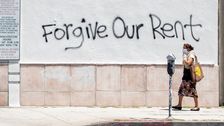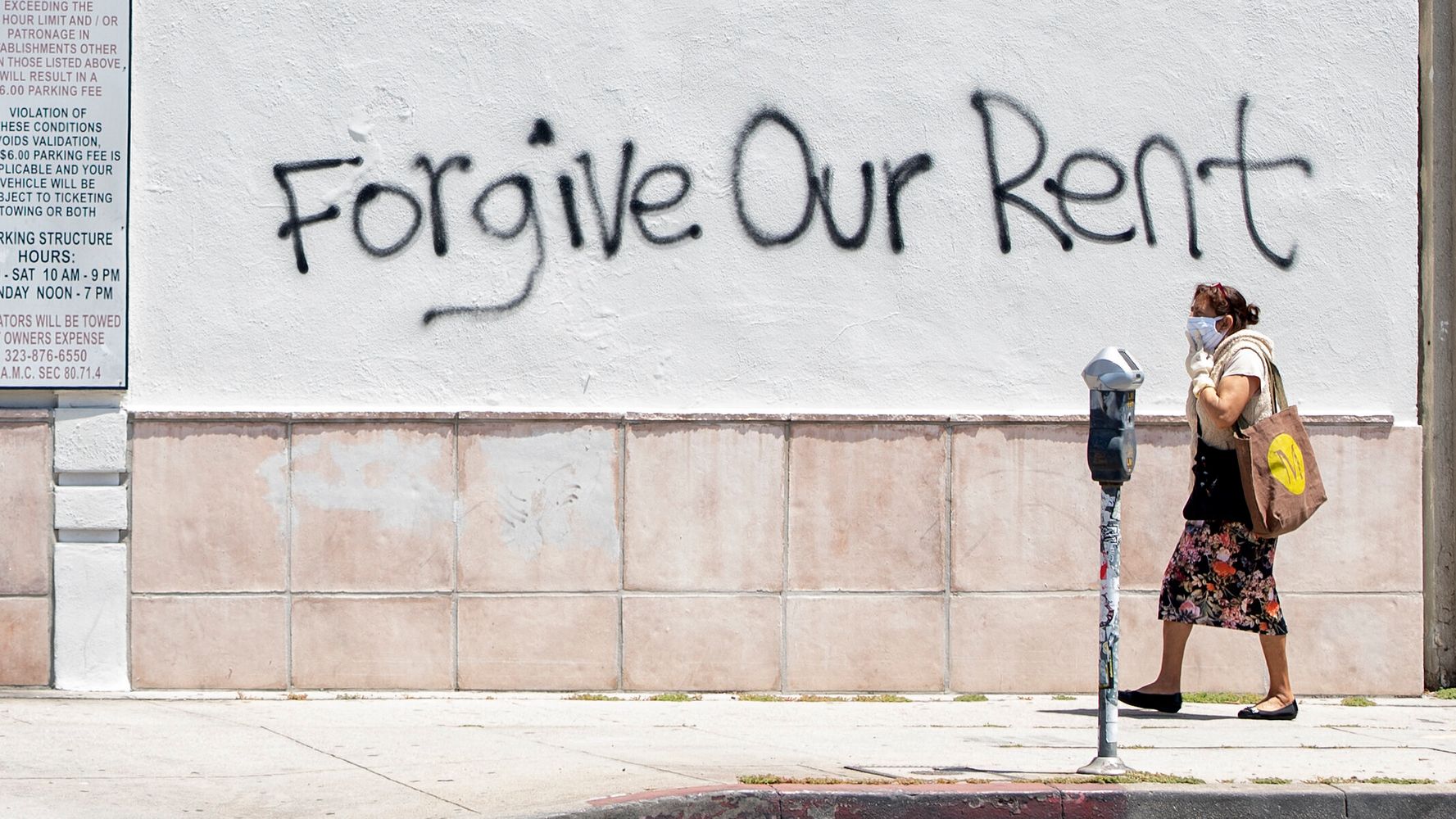[ad_1]

In early March, when the coronavirus became a full-blown public health crisis in the U.S., Lea’s job drastically changed: She went from upwards of 30 clients calling her phone sex hotline each nightly shift to only three or four.
The 24-year-old Georgia native, who lives near Atlanta, eventually had to leave that job and find a new phone sex company, but it didn’t pay enough either. She began cleaning houses, cleaning cars, tutoring, babysitting and finding other odd jobs just to make rent and pay bills. She was able to pay only a portion of her rent and received several calls a month from her landlord asking when she would be able to pay the back rent.
Millions of other people across the country are in a similar situation: An estimated 19 million to 23 million renters risk being displaced by the end of September, largely due to unemployment, and it’s estimated that 30 million to 40 million people will be evicted by the end of 2020. Republicans in Congress and the White House are largely failing to help them ― the Senate adjourned on Thursday until September without passing a COVID-19 relief bill. Without help, Lea and others are in a perilous position, with rent due dates creeping closer.
“Despite the CARES Act protecting me from eviction at the time, [my landlord] always framed things as if she were doing me a favor by not kicking me out of my home,” Lea, who is being referenced by her first name only to protect her privacy, told HuffPost. Congress passed the Coronavirus Aid, Relief and Economic Security (CARES) Act, which included a moratorium on evictions, in March, when the coronavirus pandemic had forced millions of people out of work as businesses across the country closed their doors.
On July 24, the national eviction moratorium expired. Three days later, Lea found a notice on her door saying that she would be evicted if she couldn’t come up with $2,278 in 30 days ― an amount greater than her monthly rent that didn’t quite seem right. The online rent payment system was down, so she called her landlord to ask why the amount was so high, and the landlord grew defensive, she said.
“I don’t want to get too political, but as a Black woman, it can be incredibly difficult to advocate for myself without being labeled ‘aggressive,’ and trying to balance that with not letting people walk all over me and be disrespectful is … exhausting, to put it mildly,” Lea said.
According to Lea, her landlord then mentioned that her niece was hoping to move into Lea’s unit.
“I was not happy about this,” Lea said, “but still I kept my composure.”
Affordable housing advocates have warned that the looming eviction crisis for people like Lea is an unprecedented one.
“The urgency of the situation really can’t be overstated,” Diane Yentel, president and CEO of the National Low Income Housing Coalition, told HuffPost earlier this month. “It’s keeping people very confused and anxious about what’s next.”
And the federal government isn’t helping curb that anxiety. A week ago, President Donald Trump in a news conference spoke of “stopping evictions” through a legally questionable and overall confusing executive order, and with Republicans and Democrats unable to agree on the next coronavirus aid package, a national eviction moratorium is more mirage than reality. Unfortunately for Lea, Georgia has not set its own moratorium. In the Atlanta area where she lives, eviction hearings have started up again.
Unable to drum up the necessary funds to keep her apartment, Lea did what many across the country have had to do during a financial crisis: She set up a GoFundMe page, putting the future of her livelihood in the hands of online strangers. One Twitter user with a large following retweeted the link, and Lea was able to pay her landlord what she owed.
“I am not set for next month or any other months, but I’m not completely underwater like I was before,” Lea said. “I thought about asking for more than the $2,278, but it just seemed like bad karma to ask for more than what was absolutely needed.”
Lea, like many, has struggled to stay afloat during the coronavirus pandemic both financially and psychologically. She has borderline personality disorder and has experienced suicidal ideation ― issues that self-isolation certainly haven’t helped. Doing a GoFundMe fundraiser was also difficult for her.
“When I posted the GoFundMe on my Twitter, I had trolls telling me that I was lazy and to get a job and how getting a job isn’t that hard if you aren’t lazy,” she said. “They had no idea how hard I had been working or the circumstances that led me to ask for help, yet they felt comfortable judging me anyway.”
The mental health crisis accompanying the coronavirus pandemic has affected millions. In May, nearly half of Americans reported worsening mental health symptoms, and the federal government’s crisis hotline saw a 1,000% increase in phone calls. Talkspace, a therapy app, also reported a 65% jump in clients. For people with preexisting mental health issues ― especially in the Black community, where the virus has hit so hard ― the last five months have been a scary time.
Research has shown that economic insecurity and housing instability damages our mental health. People who lose their homes via foreclosure or eviction are especially traumatized, and suicide rates in the U.S. have correlated with affordable housing crises ― something Lea relates to.
“Just trying to stay grounded and reminding myself to not commit suicide as a means to get out of debt and political turmoil is honestly kind of hard,” she said.
“When … things start to get me down and take me to that dark mental place, I remind myself that dozens of people donated money to a complete stranger so that she wouldn’t get kicked out of her apartment.”
If you or someone you know needs help, call 1-800-273-8255 for the National Suicide Prevention Lifeline. You can also text HOME to 741-741 for free, 24-hour support from the Crisis Text Line. Outside of the U.S., please visit the International Association for Suicide Prevention for a database of resources.
A HuffPost Guide To Coronavirus
Calling all HuffPost superfans!
Sign up for membership to become a founding member and help shape HuffPost’s next chapter
[ad_2]
Source link

